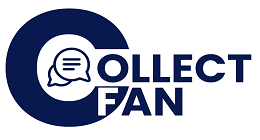
In the world of digital marketing today, search engine optimization (SEO) is paramount for actively ensuring that a website ranks prominently well on search engine results pages (SERPs). Effective SEO requires the right tools to analyze performance, track keywords, monitor competition, and improve overall site visibility. Two of the most popular tools for SEO analytics are SEMrush and Moz. While both offer comprehensive features, each has its strengths and weaknesses, making them highly suitable for different types of users and business needs.
For professionals pursuing a business analyst course, understanding the nuances of these tools is critical for helping businesses make various informed decisions about their SEO strategies. Similarly, students enrolled in a business analysis course in Thane will benefit from knowing which tool offers better SEO analytics capabilities for specific business goals. In this article, we’ll compare SEMrush and Moz to help you determine which platform is better suited for SEO analytics.
Overview of SEMrush
SEMrush is a leading digital marketing tool that provides users with a highly diverse range of features, including keyword research, competitor analysis, backlink auditing, and site performance tracking. Known for its comprehensive data and in-depth reporting, SEMrush is a prominent choice among digital marketers, SEO experts, and businesses of all sizes.
SEMrush’s robust features allow users to gain detailed insights into their own SEO performance while also keeping an eye on the competition. The platform also provides tools for paid search and content marketing, making it a versatile option for businesses looking to truly enhance their online presence.
Overview of Moz
Moz, another major player in the SEO space, is best known for its powerful keyword research tools, link building capabilities, and site audit features. Moz’s user-friendly interface makes it a popular choice for beginners, while its advanced analytics options cater to more experienced SEO professionals. Moz is widely respected for its industry-leading blog and educational content, which helps users stay updated on the latest SEO trends and best practices.
Like SEMrush, Moz offers a variety of features to help businesses improve their website’s SEO performance. However, Moz stands out for its Domain Authority (DA) and Page Authority (PA) metrics, which help users evaluate the strength of their website and individual pages in relation to competitors.
Key Features: SEMrush vs. Moz
Both SEMrush and Moz offer a range of features designed to help businesses boost their SEO performance. However, there are some important differences in how each tool approaches SEO analytics.
1. Keyword Research
- SEMrush: SEMrush offers an expansive keyword database, providing users with detailed insights into search volume, keyword difficulty, and related keywords. SEMrush also allows users to see the organic keywords their competitors are ranking for, giving businesses a competitive edge in keyword strategy. Its keyword tracking feature enables users to monitor keyword rankings over time, helping to identify trends and opportunities.
- Moz: Moz’s keyword research tool, Keyword Explorer, is another robust option for finding high-potential keywords. It provides keyword suggestions, search volume data, and a unique Keyword Difficulty score, which helps users determine how hard it will be to rank for a specific term. While Moz’s database isn’t as extensive as SEMrush’s, its intuitive interface makes keyword research simple and accessible.
In a business analyst course, learning to leverage keyword research tools like SEMrush and Moz is critical for developing effective SEO strategies.
2. Backlink Analysis
- SEMrush: SEMrush’s backlink analysis tool allows users to track their backlink profile, assess the quality of their links, and identify new link-building opportunities. SEMrush also offers a Backlink Gap tool, which enables users to compare their backlinks with those of competitors. This feature is especially essential for businesses looking to improve their authority and overall visibility in search engine rankings.
- Moz: Moz’s Link Explorer is one of the most trusted tools for analyzing backlinks. Users can view their entire backlink profile, assess the quality of inbound links, and discover opportunities for new link-building strategies. Moz’s unique Domain Authority (DA) and Page Authority (PA) metrics help users evaluate the strength of their website compared to competitors.
Both tools offer valuable insights into backlink strategies, but SEMrush’s more detailed competitor comparison features give it an edge in this category.
3. Site Audits
- SEMrush: SEMrush’s Site Audit tool scans websites for technical SEO issues such as various broken links, duplicate content, missing meta tags, and slow loading times. The tool provides a clear report of issues that need fixing, as well as suggestions for improving overall site health. SEMrush’s in-depth analysis helps businesses optimize their website for better search engine performance.
- Moz: Moz’s Site Crawl tool is similarly designed to identify technical SEO issues that could be impacting a website’s performance. Moz’s reports are easy to understand and offer actionable insights for improving site health. While Moz’s site audit capabilities are solid, SEMrush’s reports tend to be more comprehensive and provide more detailed suggestions for fixing SEO issues.
For students in a business analysis course in Thane, mastering the use of site audit tools is essential for maintaining website health and improving SEO performance.
4. Competitor Analysis
- SEMrush: SEMrush excels at competitor analysis, providing users with detailed information about their competitors’ keywords, backlinks, and overall SEO strategies. The platform’s Organic Research tool allows users to see which specific keywords their competitors are ranking for, while the Traffic Analytics tool provides insights into competitor traffic sources and visitor behavior.
- Moz: While Moz offers some competitor analysis tools, they aren’t as comprehensive as SEMrush’s. Moz provides users with basic insights into competitor keywords and backlink profiles, but it lacks the detailed traffic and competitor behavior analysis that SEMrush offers.
Conclusion
Both SEMrush and Moz are powerful SEO analytics tools, each with its own set of strengths. SEMrush is ideal for businesses seeking a comprehensive solution with advanced competitor analysis, while Moz is a solid choice for beginners or smaller businesses looking for a more straightforward interface. By understanding the specific needs of your business and how each tool can help, you can make an informed decision that maximizes your SEO efforts.
For students and professionals in a business analysis course in Thane, mastering these tools will provide a competitive advantage in developing data-driven SEO strategies and helping businesses enhance their search engine rankings.
Business name: ExcelR- Data Science, Data Analytics, Business Analytics Course Training Mumbai
Address: 304, 3rd Floor, Pratibha Building. Three Petrol pump, Lal Bahadur Shastri Rd, opposite Manas Tower, Pakhdi, Thane West, Thane, Maharashtra 400602
Phone: 09108238354
Email: enquiry@excelr.com





